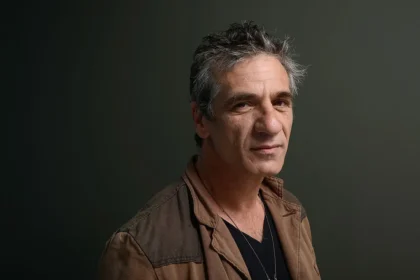Rapper Tay-K, best known for his viral 2017 hit “The Race,” has been sentenced to 80 additional years in prison for the murder of 23-year-old photographer Mark Saldivar. The sentencing, delivered on Tuesday, April 15, 2025, follows his conviction in a Texas courtroom, marking his second murder conviction in just six years.
According to News 4 San Antonio, the jury found Tay-K guilty of murder, but not capital murder—a distinction that would have mandated an automatic life sentence without parole. Nevertheless, the new sentence almost guarantees the 23-year-old rapper will spend the remainder of his life behind bars, unless unforeseen legal developments occur.
Tay-K, born Taymor Travon McIntyre, is already serving a 55-year sentence for a separate murder tied to a 2016 home invasion robbery gone wrong. It is still unclear whether his new sentence will run concurrently or consecutively with the previous one—a legal technicality that could determine if there’s any possibility for eventual parole or early release.
Judge Stephanie Boyd Delivers a Sobering Message
District Court Judge Stephanie Boyd had strong words for the young rapper following the verdict. Her remarks offered both a glimmer of hope and a stark reminder of the gravity of his crimes.
“I do realize that while this is a lot of time, you’re still alive. You can still better yourself,” Judge Boyd said, as reported by KENS 5. “But the complainant in this case is deceased, and you need to internalize that. You’re going to have to make changes.”
Her comments underscored a recurring theme in high-profile criminal cases: redemption versus justice. Although Tay-K has life ahead of him, the victims’ families will never have that chance.
The Fatal Encounter with Mark Saldivar
The murder of Mark Saldivar, which led to Tay-K’s latest conviction, took place in 2017—just one year after his involvement in the now-infamous 2016 robbery. Prosecutors argued that Tay-K attempted to rob Saldivar at gunpoint, and when the altercation escalated, he fatally shot the young photographer.
Despite defense efforts to argue otherwise, the jury believed there was sufficient evidence to convict the rapper of murder. The capital murder charge was dropped, possibly sparing Tay-K from a life sentence without parole.
This conviction paints a tragic picture of a young man whose meteoric rise in the music world was matched only by a swift and devastating fall from grace.
From Viral Star to Convicted Murderer: A Career Derailed
Tay-K gained nationwide attention in 2017 with the release of his breakout single “The Race,” a gritty track that detailed his time on the run from authorities. Ironically, the song glorified the very real crimes he was fleeing—something critics later pointed to as part of hip-hop’s complicated relationship with real-life violence.
After being placed under house arrest while awaiting trial for his first murder charge, Tay-K cut off his ankle monitor and went on the run, evading law enforcement for several weeks. During this time, he recorded “The Race” and released it online. The track quickly went viral, peaking at No. 44 on the Billboard Hot 100, and became an anthem for rebellious youth.
However, the notoriety was short-lived. Tay-K was captured in New Jersey in June 2017 and extradited back to Texas to face trial. In 2019, he was convicted of murder and aggravated robbery in connection with the 2016 home invasion that left 21-year-old Ethan Walker dead. He was sentenced to 55 years in prison and ordered to pay $21,000 in fines.
Public Outcry and Cultural Debate
Tay-K’s legal saga has sparked debate about the glorification of criminal behavior in hip-hop. Critics argue that songs like “The Race” send dangerous messages to fans, especially younger audiences. Supporters, on the other hand, claim that the rapper was merely expressing the harsh realities of his environment and upbringing.
The case has been frequently cited in conversations about the blurred line between art and real life, with some artists defending Tay-K’s right to artistic freedom and others calling for greater accountability.
Will Tay-K Ever Be Free Again?
With two major murder convictions on his record and a combined sentence that could exceed 135 years, the possibility of Tay-K ever regaining his freedom looks slim. Legal experts say that even if he becomes eligible for parole, it would likely be decades from now, and only if both sentences are served concurrently.
Additionally, the fact that both crimes involved deadly violence and appeared to be premeditated could work against him in any future parole hearings.
A Lesson in Lost Potential
Tay-K’s story is, at its core, a tragic lesson in unrealized potential. A young artist with talent and charisma, he had the opportunity to change his life—and perhaps the rap game—but chose a path of violence and rebellion.
Now, as he faces what could be the rest of his life behind bars, fans, critics, and the music industry are left asking the same question: What could have been?
Whether Tay-K will find redemption from behind prison walls remains to be seen, but one thing is certain—his story serves as a cautionary tale about the high cost of crime, fame, and the choices we make.














